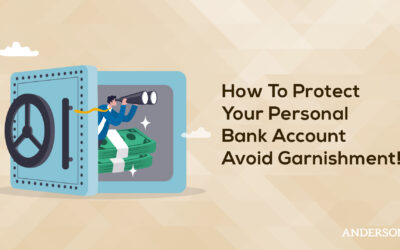Updated October 1, 2021
Real estate crowdfunding is the process of getting a pool of investors to raise capital for a real estate project. It’s a way for real estate investors who are short on cash to obtain funding. Then they can pursue flipping a house, buying a rental property, or anything else in real estate. On the other side of the equation, real estate crowdfunding can offer non-professional investors the opportunity to place their cash into the real estate market with less risk than financing a project on their own.
How Does Real Estate Crowdfunding Work?
- Structure Crowdfunding Process
- Find or Create a Real Estate Crowdfunding Platform
- Invest/Raise Capital
- Purchase Real Estate
- (Hopefully) Earn a Profit
Crowdfunding has become popular in a generation that expects a high amount of convenience from apps and technology. Internet platforms and apps, like GoFundMe and Kickstarter, help anyone crowdfund everything from a vacation to a business.
Basically, crowdfunding works by someone with a sizable goal to raise capital by word of mouth and social media sharing. In the end, they hope to acquire enough investors to fund their project. This is an alternative to obtaining a loan from a bank, traditional lender, or large private investor.
What is Real Estate Crowdfunding?
Real estate crowdfunding is the same as the general crowdfunding described above, but with the specific end goal of real estate investing in mind.
For example, someone who wants to purchase a $300k duplex as a rental property may have $50k. What’s next if they cannot secure a mortgage or swing a loan for the other $250k they need? They can reach out to investors or aspiring investors in their network with a phone call, text, or email. They can also use a real estate crowdfunding platform. Some of these platforms have requirements that are difficult for the casual investor to meet in terms of project size or accreditation.
It’s more relevant to the average consumer by providing an opportunity to invest in the real estate market through crowdfunding platforms, like Crowdtsreet and Fundrise, just as they would put cash in a mutual fund or the stock market. Some of these real estate crowdfunding platforms have high thresholds for investors to meet. Then there are others, like RichUncle and Fundrise, allow you to invest with as little as $500.
These platforms are typically REITS—real estate investment trusts—which are regulated by specific rules, just as the SEC regulates the stock market. But even without these platforms (and even without forming a REIT of your own), you can still crowdfund a real estate investment.
How Does Real Estate Crowdfunding Work?
Structure your Crowdfunding Process
Before you pick up the phone to locate an online crowdfunding platform, you will need to make sure you have all your ducks in a row with the help of a lawyer.
There are a few things you need to consider first. Will investors be getting a percentage of their investment back? What is the timeframe for repayment? Will they instead be obtaining a share in the investment? All these concerns must be thought through and contractually locked into writing to avoid problems later.
Remember, if you end up with more than 100 investors, your crowdfunding project strays into the realm of a REIT. This adds a layer of complexity due to all the federal rules and regulations. But even if your project is as simple as getting five people together to purchase a quadplex, you will want to make sure your project is protected by more than just a handshake. This is especially true if each investor is given an equity investment. This means instead of a return of interest for their involvement, they obtain a slice of ownership in the project. It’s important to specify who is a full partner in the venture (with say and control over the enterprise) and who will be a limited partner (that is, making financial contributions but having no say in the project).
Find or Create a Real Estate Crowdfunding Platform
Creating a crowdfunding platform can be as easy as browsing through your already existing network and making a few phone calls or sending some emails. If you are a little more tech-savvy, you could set up a website and send an email blast to potential investors, directing them toward a payment page. Some platforms may also offer email integrations that can make getting the word out about your project faster and easier. You can also explore traditional consumer-facing crowdfunding platforms like Fundrise and RealtyMogul.
Keep in mind that most platforms require investors to be accredited. These are investors that have a net worth of $1 million or an annual income of at least $200k (and that net worth cannot include the value of their own residence).
Other things you need to take note of are the fees collected, the time it takes to get your funds released, and whether or not you can access your funds before certain fundraising goals are met. If you don’t raise enough capital through crowdfunding, you may need to leverage other funding tools to close financial gaps, such as a traditional loan or cash.
Invest/Raise Capital
Once your paperwork is in order and you’ve outlined an action plan, it’s time to get to work.
Whether you’re making phone calls or sending emails, you’ll need to persevere. Not everyone is going to be interested in your project. This is where it helps to have a portfolio showcasing your expertise or the return that this project can offer investors. It also helps if you have a knack for sales.
If you are using one of the many websites in the real estate crowdfunding market. Note they will take out fees, and they may not release the funds until you hit your stated goal. They may also take some time to release the payment into your bank account. This is to be expected given the fact that the crowdfunded amount may be a sizable chunk of cash. Large transactions are usually subjected to a tightened security process. Make sure you know how long it takes to get your money so you can time your deal accordingly.
Purchase Real Estate
Once you’ve met your crowdfunding goals, it’s time to make your purchase. Whether you’re a full-time real estate developer or a part-time investor, you should know that this part of the process involves plenty of paperwork and legal structuring.
The good news is that since you crowdfunded your real estate investment, you can avoid the many issues and roadblocks of getting a loan from a bank, such as the long wait for mortgage approval, which has thrown a wrench in many a plan in today’s tight-fisted lending climate. With crowdfunded capital, you’re ready to make your move.
(Hopefully) Earn a Profit
Real estate investors have to love what they do, but the bottom line is the return on investment. In order to make sure that your crowdfunding process yields a profit, you’ll have to add up the numbers beforehand. This includes factors like what percentage each investor will get in return for their investment. It also includes the costs associated with the project and any capital gains tax that could eat away at your profit.
This type of information will help you figure out how many investors you can afford to take on before the dividends or interest paid out to each one eliminates the cost-effectiveness of a potential real estate project.
What are the Pros of Real Estate Crowdfunding?
A crowdfunded investment can provide a real estate investor with a quick and easy way to lock down an opportunity that might otherwise be lost due to financial shortcomings.
Crowdfunded real estate investments can also be an attractive alternative to real estate deals funded with a traditional loan or mortgage. By structuring participation in the real estate project as equity crowdfunding, the principal partner (the one in charge of the arrangement) can offer each individual investor an equity investment in the property (ownership) instead of paying them interest. In this way, a crowdfunded investment offers greater flexibility.
When it comes to using a real estate crowdfunding site for the average, nonaccredited investor, this can be a great way to generate cash flow without the volatility risk of the stock market. Real estate tends to be a more stable investment over time. Participating in a crowdfunding investment or one of the many publicly traded REITS can be a great way to stabilize an investment portfolio and reap dividends from the crowdfunding space. Even an accredited investor can benefit from crowdfunded real estate, which can create sizable cash flow and dividends without the burden of needing to manage a portfolio.
What Are the Cons of Real Estate Crowdfunding?
In terms of participating in a crowdfunding platform by contributing cash, drawbacks include fees, taxes, and the illiquidity of real estate as an asset. Some platforms charge 2.5 percent or more for the management of your funds. Depending on how much profit you make, you will also be subjected to undesirable tax rates—but a competent tax advisor can help you deflect damage in this area.
Real estate is also considered an illiquid asset, which means that if you want to pull your money out of the investment for some reason, that is not as simple as making a withdrawal from a brokerage account invested in stocks.
In terms of doing your own real estate crowdfunding, the immediately apparent con is the work involved. It’s much easier to get a loan from one person than to round up multiple investors. You may also find that the increased number of participants eats away at your profit. You must also remember to legally structure your deals so that investors cannot exert an undue influence in the process of decision making. The easiest way to do this is by making them limited partners, but even that still requires a lot of legal paperwork.
Real estate crowdfunding might yield capital faster than a mortgage from a traditional institutional lender, but it can also take longer than securing a bridge loan or swing loan from one investor.
Real Estate Crowdfunding Can Be a Great Option for a Wide Variety of Investors
While real estate crowdfunding is a great way for investors to participate in the real estate market when they do not have sufficient capital of their own to get started. It allows smaller investors to invest as little as a few hundred dollars in a REIT that manages a broad portfolio of properties, while also allowing real estate investors to fundraise the capital they need to flip a home or purchase rental property.
If you’re interested in contributing to a real estate crowdfund or want to raise capital through crowdfunding for your next real estate project, it’s important to educate yourself on the terms and conditions of the platform or deal beforehand. When structured correctly, real estate crowdfunding can be a lucrative investment for everybody involved.
As always, take advantage of our free educational content and every other Tuesday we have Toby’s Tax Tuesday, a great educational series. Our Structure Implementation Series answers your questions about how to structure your business entities to protect you and your assets.
Additional Resources:
- Claim your FREE Strategy Session
- Join our next Tax & Asset Protection event to learn more advanced tax minimization & entity structuring strategies
- For all things investing, check out the Infinity Investing YouTube channel
- Subscribe to our YouTube channel to make sure you never miss the latest strategies & updates
Bonus Video
Free Strategy Session with an Anderson Advisor
Receive a detailed risk assessment to assist in lowering problem areas that could wipe out all of your assets with one wrong move. Speak with an Anderson Professional Advisor to get your FREE Strategy Session. Limited-Time offer: FREE (a $750 value.)















